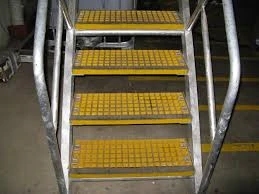
-
 Afrikaans
Afrikaans -
 Albanian
Albanian -
 Amharic
Amharic -
 Arabic
Arabic -
 Armenian
Armenian -
 Azerbaijani
Azerbaijani -
 Basque
Basque -
 Belarusian
Belarusian -
 Bengali
Bengali -
 Bosnian
Bosnian -
 Bulgarian
Bulgarian -
 Catalan
Catalan -
 Cebuano
Cebuano -
 China
China -
 China (Taiwan)
China (Taiwan) -
 Corsican
Corsican -
 Croatian
Croatian -
 Czech
Czech -
 Danish
Danish -
 Dutch
Dutch -
 English
English -
 Esperanto
Esperanto -
 Estonian
Estonian -
 Finnish
Finnish -
 French
French -
 Frisian
Frisian -
 Galician
Galician -
 Georgian
Georgian -
 German
German -
 Greek
Greek -
 Gujarati
Gujarati -
 Haitian Creole
Haitian Creole -
 hausa
hausa -
 hawaiian
hawaiian -
 Hebrew
Hebrew -
 Hindi
Hindi -
 Miao
Miao -
 Hungarian
Hungarian -
 Icelandic
Icelandic -
 igbo
igbo -
 Indonesian
Indonesian -
 irish
irish -
 Italian
Italian -
 Japanese
Japanese -
 Javanese
Javanese -
 Kannada
Kannada -
 kazakh
kazakh -
 Khmer
Khmer -
 Rwandese
Rwandese -
 Korean
Korean -
 Kurdish
Kurdish -
 Kyrgyz
Kyrgyz -
 Lao
Lao -
 Latin
Latin -
 Latvian
Latvian -
 Lithuanian
Lithuanian -
 Luxembourgish
Luxembourgish -
 Macedonian
Macedonian -
 Malgashi
Malgashi -
 Malay
Malay -
 Malayalam
Malayalam -
 Maltese
Maltese -
 Maori
Maori -
 Marathi
Marathi -
 Mongolian
Mongolian -
 Myanmar
Myanmar -
 Nepali
Nepali -
 Norwegian
Norwegian -
 Norwegian
Norwegian -
 Occitan
Occitan -
 Pashto
Pashto -
 Persian
Persian -
 Polish
Polish -
 Portuguese
Portuguese -
 Punjabi
Punjabi -
 Romanian
Romanian -
 Russian
Russian -
 Samoan
Samoan -
 Scottish Gaelic
Scottish Gaelic -
 Serbian
Serbian -
 Sesotho
Sesotho -
 Shona
Shona -
 Sindhi
Sindhi -
 Sinhala
Sinhala -
 Slovak
Slovak -
 Slovenian
Slovenian -
 Somali
Somali -
 Spanish
Spanish -
 Sundanese
Sundanese -
 Swahili
Swahili -
 Swedish
Swedish -
 Tagalog
Tagalog -
 Tajik
Tajik -
 Tamil
Tamil -
 Tatar
Tatar -
 Telugu
Telugu -
 Thai
Thai -
 Turkish
Turkish -
 Turkmen
Turkmen -
 Ukrainian
Ukrainian -
 Urdu
Urdu -
 Uighur
Uighur -
 Uzbek
Uzbek -
 Vietnamese
Vietnamese -
 Welsh
Welsh -
 Bantu
Bantu -
 Yiddish
Yiddish -
 Yoruba
Yoruba -
 Zulu
Zulu
frp insulated storage vessel
The Role of FRP Insulated Storage Vessels in Modern Industry
In today's fast-paced and evolving industrial landscape, the demand for efficient and reliable storage solutions is more critical than ever. One particularly innovative option that has gained traction is the use of Fiber Reinforced Polymer (FRP) insulated storage vessels. These vessels combine the benefits of advanced composite materials with insulation technology, offering a host of advantages tailored to specific industrial needs.
Understanding FRP Technology
Fiber Reinforced Polymer (FRP) is a composite material made by combining a polymer matrix with fiber reinforcement, commonly fiberglass. This unique combination results in a material that is lightweight, high-strength, and resistant to corrosion and various environmental factors. FRP is particularly beneficial in industries that deal with harsh substances, such as chemicals, food processing, and pharmaceuticals, where traditional materials like steel may not perform adequately.
Insulation Properties
In addition to the inherent advantages of FRP, insulation is a key feature of these storage vessels. Effective insulation is crucial for maintaining the temperature of the contents, whether they are liquids, gases, or solids. FRP insulated storage vessels are adept at minimizing heat transfer, reducing energy costs, and preserving the quality of volatile materials. This is especially vital for applications involving cryogenic liquids, heated substances, or even temperature-sensitive chemicals.
Applications in Various Industries
FRP insulated storage vessels are versatile and can be found in a multitude of industries. In the chemical industry, for instance, these vessels are used to safely store hazardous materials that require temperature regulation to prevent undesired reactions. In the food and beverage sector, they help maintain the freshness and safety of products by providing a stable environment, which is critical for compliance with health regulations.
frp insulated storage vessel

Moreover, the pharmaceutical industry has also begun to adopt FRP insulated vessels for the storage of active pharmaceutical ingredients (APIs) and finished products. The temperature-controlled environment provided by these vessels plays a vital role in ensuring the efficacy and safety of medications, which is paramount in healthcare.
Advantages Over Traditional Materials
When compared to traditional storage options, FRP insulated vessels offer several distinct advantages. First and foremost is their resistance to corrosion, which significantly enhances their longevity and reduces maintenance costs. Unlike metal vessels, which can suffer from rust and wear over time, FRP materials remain stable and intact, even when exposed to harsh chemicals.
Another advantage is their lightweight nature, which eases transportation and installation. This is particularly important in projects where mobility and flexibility are key, allowing industries to adapt to changing operational needs without investing heavily in infrastructure.
Environmental Considerations
As sustainability becomes a focal point in global manufacturing practices, FRP insulated storage vessels also present an environmentally friendly option. Their durability often translates to a longer lifespan, reducing the need for frequent replacement and minimizing waste. Additionally, their energy-efficient properties help lower overall carbon footprints by reducing energy consumption during operations.
Conclusion
In summary, the adoption of Fiber Reinforced Polymer insulated storage vessels is an emerging trend that addresses various challenges faced by modern industries. Their unique combination of strength, corrosion resistance, thermal insulation, and lightweight properties makes them an appealing choice for safe and efficient storage solutions. As the demand for versatile and sustainable materials continues to grow, the role of FRP insulated storage vessels will undoubtedly become more prominent, shaping the future of industrial storage practices. By investing in these advanced technologies, industries can enhance their operational efficiency while adhering to environmental and safety standards.









